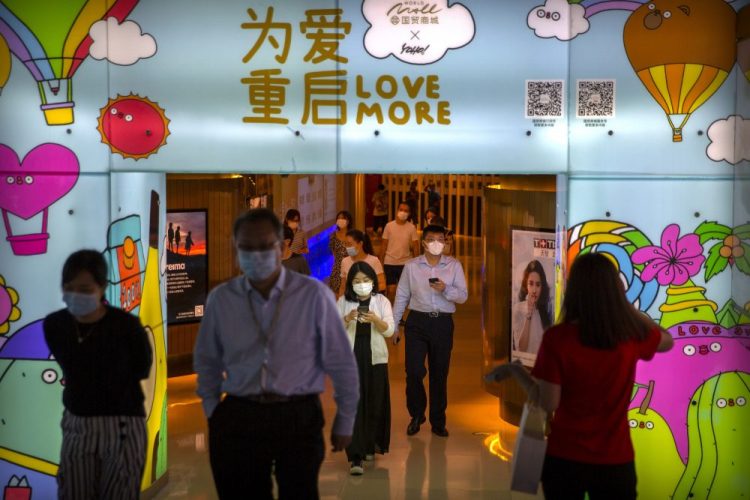With family still living in China, I became aware of the “new coronavirus” relatively early. After the first death in Wuhan was reported Jan. 11, I started calling home more frequently. An ominous feeling was in the air, like that of the 2003 SARS outbreak, which caused the cancellation of my wedding ceremony in Shanghai.
This year, again, I had been planning a major event – taking a group of Cheverus High School students to visit China in June. Several of them had been learning Chinese for years and had worked hard to make this trip happen. We fundraised throughout the fall and secured our funding by Christmas. On Jan. 18, our Chinese travel agency received our deposit; but within a week, it sent out an email regarding possible trip postponement or cancellation. On Feb. 7, a week after the World Health Organization declared a global health emergency, we canceled our trip to Beijing, Xi’an and Shanghai.
It was a relief, with students’ health and safety on the line, but also an unexpected loss. I went through a grieving process, not just over the trip, but also over the grim situation in China. One of my classes was researching Chinese geography, so I assigned a student to present on the city of Wuhan’s history and culture as well as infection and death tolls. I was hoping the students would gain a better understanding of the virus and the human suffering so that it would not be treated as a mystery or a joke. Their maturity and compassion soon outgrew those of politicians, who embraced racial invective to cover up their own failed responses to the virus.
On March 7, I invited another Chinese language teacher, Christie Barnes, to my music show at WMPG. She had to cancel a spring break trip to China with her students from Berwick Academy. We talked about her experience of learning Chinese and teaching English in China, how she cherished her encounters with the Chinese people, often pure strangers, and how she worried about her friends under lockdown in China. During the show, however, I also got a call from an unidentified person who shouted, “Wuhan! Wuhan! Coronavirus! Coronavirus!”
The call was disturbing but trivial compared to the many attacks on Chinese or East Asians in the U.S. They were spat upon, assaulted physically (even the elderly) and told to leave the country. COVID patients refused to be treated by Asian American doctors – though many Asian American medical professionals are saving lives on the front line. Over a six-week period from mid-March, San Francisco State University researchers received over 1,700 reports of coronavirus discrimination across America.
After WMPG’s Portland studio was closed, I made a few shows from home featuring traditional music recorded around the world: a love ballad from Romania, a mourning song from Zimbabwe, a dance tune from Bolivia or joyful chants from Tahiti. Music, just like Earth, has no borders. We are essentially one human race. We can appreciate music from other cultures because we share fundamental instincts and emotions. Recently, an astronaut aboard the International Space Station echoed this sentiment: “When you see the planet below, you don’t see borders, you don’t see the strife. You see this beautiful planet that we need to take care of.”
When concluding the spring semester, I taught my students one last character, “ren,” a key term in Confucianism, often translated as “humane” or “humanity.” A compound of two symbols – people and the numeral two – the character suggests an ideal way “to treat each other.”
The pandemic has tested our ability to treat each other with patience and kindness. I applaud my students for doing their part: They have endured prolonged isolation and the deprivation of normal educational, athletic and social activities to protect the general public, especially older adults, more than themselves.
I also reassure my students that they will have a chance to visit China someday despite the escalating Sino-U.S. tension. Governments may always contend for power and control, but we the people should never fear each other. COVID-19 has shown us that our world is connected more than ever by transportation and technology, so we must work with each other better than ever, within and beyond our communities, states and national borders.
Copy the Story LinkSend questions/comments to the editors.



Success. Please wait for the page to reload. If the page does not reload within 5 seconds, please refresh the page.
Enter your email and password to access comments.
Hi, to comment on stories you must . This profile is in addition to your subscription and website login.
Already have a commenting profile? .
Invalid username/password.
Please check your email to confirm and complete your registration.
Only subscribers are eligible to post comments. Please subscribe or login first for digital access. Here’s why.
Use the form below to reset your password. When you've submitted your account email, we will send an email with a reset code.